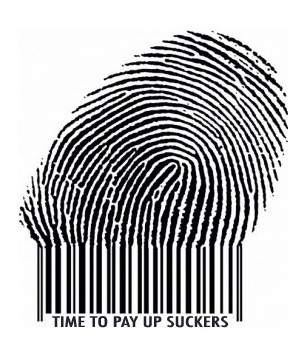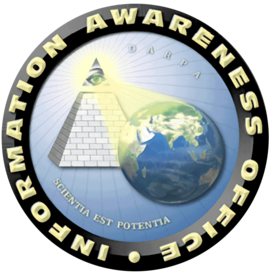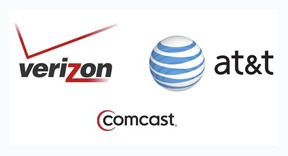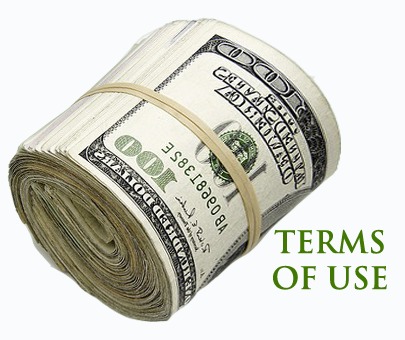Nothing sells better than the manifestation of exclusivity
Let’s get something straight. While there may be good reason to be angry about new revelations related to our civil liberties, arguing over whether NSA leaker Edward Snowden is a traitor or a hero isn’t where our focus should be.
 Right before our eyes we’re watching ground being broken for a new marketplace: our recent national lack-of-privacy fear just created a commercial demand for PRIVACY™
Right before our eyes we’re watching ground being broken for a new marketplace: our recent national lack-of-privacy fear just created a commercial demand for PRIVACY™
Get it?
The conservative drumbeat that ObamaCare, Benghazi, the IRS scandal, and the Justice Department’s seizure of journalists’ phone records represent expanded abusive government and/or a “continuation of policies” is a diversion. And CNN’s idiotic prizefights between privacy advocates and backers of the doozy that started it all – the Patriot Act, are distracting millions from the real government data collection issue. In fact, the part of this week’s surveillance state revelations that stinks the most is the one thing we’re not hearing about: money.
Fact is, telecom corporations don’t need to listen to your phone calls for you to fear they’re listening to your phone calls. They only need you to think that the tools and laws are in place in order to sell you a federally guaranteed “communication plan” or Internet “privacy.” Yup: this whole controversy is about the future of the Internet and monetizing our civil liberties. Anyone who thinks differently is naïve – or not paying attention. (On the other hand, considering that sales of Orwell’s 1984 rose by 7,000% this week, at least some are trying to widen their perception.)
 Think about who and what the government is in 2013: it’s corporate lobbyists enticing Senators and Congressmen to do their bidding with an intensity America has never seen. It’s agency after agency abusing its authority or hiring hookers. It’s fine print, booby-trapped legislation that is somehow more yawn inducing than ever (to the point that not even representatives end up reading it). We may be a government by the people and for the people, but more government “people” than we can count are scrambling out the door with the furniture and silverware – especially if you count corporations as people.
Think about who and what the government is in 2013: it’s corporate lobbyists enticing Senators and Congressmen to do their bidding with an intensity America has never seen. It’s agency after agency abusing its authority or hiring hookers. It’s fine print, booby-trapped legislation that is somehow more yawn inducing than ever (to the point that not even representatives end up reading it). We may be a government by the people and for the people, but more government “people” than we can count are scrambling out the door with the furniture and silverware – especially if you count corporations as people.
And corporations, as we know, are fundamentally after all the money in the galaxy. So make some sucker think he’s getting something extra, and he’ll pay you for it, right? My position is that this very thinking will soon be applied to privacy. So welcome to the kick-off. Giant telecom companies and other government-influencing conglomerates have a worldwide grip on how we live, breathe, and die. How can anyone say we aren’t governed by corporations, when they’re handed seventy percent of the national intelligence budget!?
Keeping some people out always guarantees someone else will pay to get in, which makes it likely that, in just a few short years, folks who want to get on the Internet will need a government permit to do so. Then, if you want to look at a website originating in Prague, your request will require a jump on three different servers to get you there. Naturally, you’ll going to be charged for all three jumps. And they’ll be there to collect.
 I envision an Internet future where you’ll need a permit to be online to begin with, and those who can afford it will be able to opt in to tiered –and accordingly priced– privacy packages. The telcom empire is taking advantage of ineffective governance and Washington’s perpetual war to create a demand for purchasable privacy, and will soon watch the profits roll in. It lets the Feds worry about the Edward Snowden’s of the world, as well as pay for safeguarding the surveillance structure, because that’s its function. And we pay to get what our neighbor just bought: a Citizen Class Communications Monitoring Exemption Card. Sound like make-believe? Bullshit it does! Especially with reverse-accountability woven into the whole deal! The “world’s largest internet brands” are free to deny involvement in any data-harvasting, and point the finger back at Washington, in part because the Director of National Intelligence and the United States Attorney General have the power to cancel out actions being taken against internet companies as a result of co-operating with authorities’ requests.
I envision an Internet future where you’ll need a permit to be online to begin with, and those who can afford it will be able to opt in to tiered –and accordingly priced– privacy packages. The telcom empire is taking advantage of ineffective governance and Washington’s perpetual war to create a demand for purchasable privacy, and will soon watch the profits roll in. It lets the Feds worry about the Edward Snowden’s of the world, as well as pay for safeguarding the surveillance structure, because that’s its function. And we pay to get what our neighbor just bought: a Citizen Class Communications Monitoring Exemption Card. Sound like make-believe? Bullshit it does! Especially with reverse-accountability woven into the whole deal! The “world’s largest internet brands” are free to deny involvement in any data-harvasting, and point the finger back at Washington, in part because the Director of National Intelligence and the United States Attorney General have the power to cancel out actions being taken against internet companies as a result of co-operating with authorities’ requests.
 In the end, this isn’t about the CIA or the NSA. And it’s less about your constitutional right to privacy than you might be ready to accept. This is about big corporations working with their obedient little dog to collect data and position Americans for a future of paying for communications confidentiality – and all in the name of anti-terrorism surveillance. Where it stops, no one can really say, and it doesn’t really matter. You just need to prepare yourself to be pitched on new ways to part with your money in order to “limit” the evisceration of your civil liberties because they’re gone, folks. Now you’ll pay to show others you’ve gotten your’s back. Yes, online privacy is the new Mercedes-Benz.
In the end, this isn’t about the CIA or the NSA. And it’s less about your constitutional right to privacy than you might be ready to accept. This is about big corporations working with their obedient little dog to collect data and position Americans for a future of paying for communications confidentiality – and all in the name of anti-terrorism surveillance. Where it stops, no one can really say, and it doesn’t really matter. You just need to prepare yourself to be pitched on new ways to part with your money in order to “limit” the evisceration of your civil liberties because they’re gone, folks. Now you’ll pay to show others you’ve gotten your’s back. Yes, online privacy is the new Mercedes-Benz.
Sound looney? Here’s where all the players converge. You decide.
Okay, WHEW! Enough! Now, all of that aside, I’ve tweeted and boasted this week that I saw this coming ten years ago. And I realize that if that’s true, it’s up to me and those who feel similarly to keep the focus on how we conduct ourselves, to think clearly and not allow ourselves to be distracted. It’s up to each of us to encourage others not to use this as an excuse for more mistrust, judgment, hatred, and division among real people. We have enough of that already, and P.S. 95% of it is artificial. Refuse to get into discussions about whether or not Snowden is a traitor. Don’t waste your breath blaming this liberal or that conservative. The enemy is not the person who believes differently; the enemy is whoever or whatever makes you afraid that person is around the corner.

Great article. It isn’t hard to see: basic plans, advanced plans, deluxe plans, silver, gold, platinum and titanium, and gift cards available at Target, Walmart, and Best Buy!
Big Brother? Well I look at it this way, if you have nothing to hide it’s OK. If so, start going to the Spy Store.
Powerful. In 1968 a guy named Paul Armer warned the Senate how dangerous a cashless society would be to our privacy. Had we heeded that warning, things might be different today. But we didn’t, and we have no one to blame but ourselves for the outcome.